University of Leeds Teaching Awards 2023 Winners
Find out more about the winners of the University of Leeds Teaching Awards 2023
 Browse the following profiles of our 2023 winners. To find out more about the awards you can visit our main teaching awards page or read the announcement of the 2023 winners on the For Staff website.
Browse the following profiles of our 2023 winners. To find out more about the awards you can visit our main teaching awards page or read the announcement of the 2023 winners on the For Staff website.
Early Career Excellence Winners
Dr Katie Gathercole
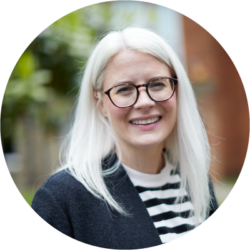 Dr Katie Gathercole - School of Education, Faculty of Social Sciences
Dr Katie Gathercole - School of Education, Faculty of Social Sciences
Dr Katie Gathercole is a Lecturer in Childhood Studies and Inclusion in the School of Education. She is a Leeds graduate and completed her ESRC funded PhD in 2017. Katie joined the University as a Teaching Fellow in 2018, providing high quality teaching to undergraduate and postgraduate students. She now leads the highly successful BA Childhood Studies degree programme.
Ensuring that all students feel included and are able to participate in learning is fundamental to Katie’s approach to teaching. Katie’s research and practice has been influential in developing inclusive pedagogies to support and value diverse student experiences, including the use of multimodal learning techniques. She has developed powerful external collaborations in the field of Childhood to inspire students and develop their understanding of the societal significance of their degree. Working with the Royal Foundation, Katie recently welcomed HRH the Princess of Wales to the University who visited Childhood Studies students when launching her early childhood campaign ‘Shaping Us’.
Katie also supports Postgraduate Researchers (PGRs) new to teaching. She co-designed the curriculum and training materials to advance PGRs skills and confidence in teaching diverse learner groups. Her work in this area has facilitated impactful PGR developmental opportunities in the School of Education.
It is an incredible honour to win an Early Career Excellence Teaching Award. As a former student, I was taught by inspirational academics who championed inclusion and equity in education. The award is recognition that my approach is continuing in the same vein. It is an immense privilege to witness how students grow and develop through their journeys with us. Thanks go to my students and colleagues who have inspired and supported me along the way.
Dr Madeleine Le Bourdon
 Dr Madeleine Le Bourdon - School of Politics and International Studies, Faculty of Social Sciences
Dr Madeleine Le Bourdon - School of Politics and International Studies, Faculty of Social Sciences
Dr Madeleine Le Bourdon is an Associate Professor in the School of Politics and International Studies where she is the Co-Director of the Centre for Teaching Innovation and Scholarship, Programme Director for International Development BA (hons), and school lead for the University of Ghana study abroad semester.
Madeleine has been recognised for her commitment to furthering open and inclusive pedagogical scholarship and practice within the University and beyond. This is reflected in her feature as an Open Access Research case study, her international publications on privilege and positionality in pedagogical research and the impact of her co-curated workshops on ‘Decolonial Pedagogical Approaches’.
As a leading academic in the field of Global Education, Madeleine sits as an Academic Expert for the international ANGEL Network where she advises on policy, research and practice. She is the editor of the International Journal for Development Education and Global Learning, the co-host of the podcast ‘Politics and Pedagogy’ and Trustee for Diversity in Development.
I am thrilled and honoured to receive this award. Teaching and learning is an innate passion of my mine and I am truly privileged to work with students and colleagues that inspire me every day. Recognition of my work is really a recognition of a generous community of teachers and researchers committed to furthering inclusive learning, for which I have learnt so much.
Sustained Excellence Winners
Dr Pam Birtill
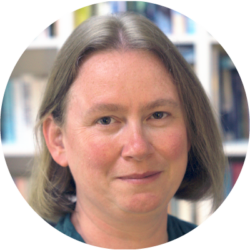 Dr Pam Birtill - School of Psychology, Faculty of Medicine and Health
Dr Pam Birtill - School of Psychology, Faculty of Medicine and Health
Dr Pam Birtill is an Associate Professor of Psychology, and Academic Lead for LEAF (Leeds Expectations for Assessment and Feedback), supporting the Dean for Student Education (Quality and Standards) in implementing the assessment strategy across the University.
Pam obtained a BA (Hons) in Natural Sciences at the University of Cambridge, and DPhil in Psychology at the University of York. She started at the University of Leeds in 2003 as a lecturer and was promoted to Associate Professor in 2015. Her research has moved from exploring fundamental biological mechanisms of learning, to food related behaviours, and pedagogical research around the student learning experience.
Pam brings her psychology knowledge to bear on the student experience, and this award recognises the contribution she has made in a wide range of areas, including creating a student guide to the hidden curriculum, imposter syndrome, belonging, and global citizenship. Her current focus is on implementing the assessment strategy as part of the Curriculum Redefined project, working with colleagues around the University to improve the assessment experience for students and staff. She is championing innovative approaches to assessment including synoptic assessment and ungrading approaches.
I’m so pleased to have been given this award. I really enjoy my student education practice. Feeling that I’m able to make a difference to our students, and improve their experience of assessment, is important to me, and I’m delighted that the University recognises this work.
Dr Steve Montagu-Cairns
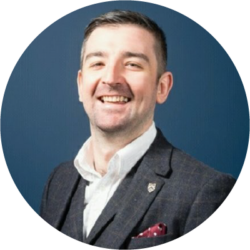 Dr Steve Montagu-Cairns - School of Law, Faculty of Social Sciences
Dr Steve Montagu-Cairns - School of Law, Faculty of Social Sciences
Dr Steve Montagu-Cairns is a multi-award-winning academic who specialises in financial regulation, corporate governance and prevention of financial crime within multinational corporate entities. He joined the University of Leeds in 2018 as a Lecturer in Finance and Corporate Law and is both the Digital Education Academic Lead for the School of Law and Co-deputy director of the Centre for Innovation and Research in Legal Education. Steve has a passion for innovative pedagogy within legal education and is committed to liberating legal pedagogy from outdated methods that have led to an impersonal, uninspiring and disjointed learning experience for the modern student.
Steve deploys innovative methods throughout his educational portfolio but most recently has focused on the use of Game-Based Learning (GBL) and digital technology. He strongly believes GBL has the potential to engage and motivate learners, promote creativity of thought, enhance knowledge retention and transfer and stimulate critical thinking and decision-making skills. Steve’s scholarship has shown that deploying innovative methods can significantly increase student engagement both inside and outside the classroom.
Drawing from his expertise, Steve supports his academic colleagues at the University of Leeds and beyond. He is the founder and co-convenor of Legal Educational Games: Engagement, Network and Dissemination (LEGEND) the largest global network to support academics interested in the use of GBL in legal education. Furthermore, he is a committee member of the Association of Law Teachers where he mentors junior academic colleagues with a career focus on teaching and scholarship.
Over the past two years, Steve has also undertaken a secondment to Digital Education Services, where he has acted as academic lead for the successful Minerva Upgrade Project. This strategic institutional endeavour revolutionised the University's primary online teaching environment. Through collaborative efforts with support teams across the University, Faculties, Schools and most importantly, students, this essential and highly innovative project has transformed the student experience across all module teaching areas. It has also served as a model for digital transformation initiatives at the University of Leeds as well as other educational institutions.
It’s really humbling to receive such an award. One of the biggest factors that drew me to joining Leeds was the university wide commitment to scholarship. Whether that be at an institutional level through the Curriculum Redefined project, or more locally with amazing research, scholarship and innovation networks like CIRLE and LITE. Having this support to draw upon has given me the freedom to pursue my own innovative agenda to relative success and has reaffirmed for me that Leeds is a special place dedicated to improving the student journey. Thank you very much!
Hayley Whitefoot
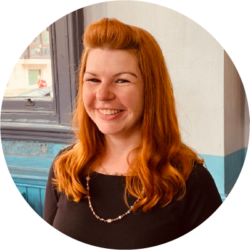 Hayley Whitefoot - Digital Education Service / Faculty of Engineering and Physical Sciences
Hayley Whitefoot - Digital Education Service / Faculty of Engineering and Physical Sciences
Hayley Whitefoot is a Senior Learning Technologist in the Faculty of Engineering and Physical Sciences who supports and develops teaching staff to create the best digital learning experiences for students. Hayley has worked in digital education in HE since 2016 and started in her current role at the University in 2017. She has worked hard to support over 500 teaching staff in the faculty, providing technical and pedagogical advice and leading innovative digital education pilots.
Guiding the Faculty through major challenges and changes, Hayley has helped foster a dynamic, diverse and inclusive peer-learning culture via the faculty’s teaching and learning network, TALENT. Hayley is a leading member of TALENT, running practice-sharing events and workshops which bring together over 150 academics in a dynamic community of practice.
A LEAN Practitioner and Aurora leader, Hayley also leads and mentors a team of Faculty Learning Technologists to support academics to create effective student learning journeys and run a range of faculty projects, Special Interest Groups and events. Her sustained impact on the academic community and student learning has been recognised by Senior Fellowship achievement via Advance HE and at the recent UK Horizons in STEM conference.
I am thrilled to have won this award and have my work recognised in this way. Supporting and developing academic staff (specifically in digital education) to deliver an excellent student experience is my passion and I'm always striving to improve how I do this. Taking stock of my work over the last six years really made me reflect upon the milestones, the challenges and the lightbulb moments, and the transformations that I, my team, the faculty and the University have been through. I would like to say a huge thanks to our EPS academics, our local Digital Education Enhancement team and the wider Digital Education Service team for supporting me along the way.
Early-Stage Collaborative Excellence Winners
Baines Family Tree Project
Dr Gabriel Jones, Lisa Forbes-Grant, Kate Phillips, Daniel Ward, Faith Kennedy, Dr Claire Cooper, David Woodcock - School of Healthcare, Faculty of Medicine and Health / Digital Education Service
The Baines Family Tree is a three-year interactive family tree eLearning resource, conceived by nursing academics Kate Philips and Lisa Forbes Grant from the School of Healthcare; and designed by learning technologist Gabriel Jones; with the technical support of senior learning technologist Daniel Ward; and the experiential insights of service user David Woodcock, and student stakeholders Faith Kennedy and Claire Cooper.
As a team, we are incredibly proud of what we have achieved with the Baines Family Tree over the past year. It has been a pleasure to work together and see the resource come to life in the classroom, with each member of our tight working group making valuable contributions to its authenticity, inclusivity, sustainability, and functionality. We are all very excited to see where the next year will take us as the family tree continues to develop, with planned roll-out of the full three-year version of the resource and a workshop at the 2023 ALT Conference at Warwick University in September.
Dr Gabriel Jones
 Dr Gabriel Jones is a learning technologist in the Faculty of Medicine and Health at the University of Leeds. Prior to starting the role in August 2022, he completed his PhD in music in the School of Music. His work has been published in the journals Twentieth-Century Music and Tempo. His interests in teaching and pedagogical innovation span back to his early-career experience as a piano teacher and later lecturer at KM Conservatory of Music and Technology, Chennai, India.
Dr Gabriel Jones is a learning technologist in the Faculty of Medicine and Health at the University of Leeds. Prior to starting the role in August 2022, he completed his PhD in music in the School of Music. His work has been published in the journals Twentieth-Century Music and Tempo. His interests in teaching and pedagogical innovation span back to his early-career experience as a piano teacher and later lecturer at KM Conservatory of Music and Technology, Chennai, India.
Gabriel first became involved in the Baines Family Tree project when starting work as a learning technologist last summer. He has been responsible for designing, programming, and maintaining the resource, from early prototypes through to the latest ongoing developments, using the eLearning authoring software Articulate Storyline. Throughout this process, he has worked closely with Lisa Forbes Grant and Kate Philips, with the support of senior learning technologist Daniel Ward, and the feedback of student stakeholders and service users, to ensure the accessibility, authenticity, and sustainability of the resource. This close-knit and productive collaboration has contributed to positive feedback from student users and the university-wide recognition of the 2023 Partnership Award for Innovation.
I could not have asked for a more exciting, communal, and inspiring project with which to begin my career as a learning technologist at the University of Leeds. Working as part of the Baines Family Tree team has been a transformative experience, demonstrating the power of interdisciplinary collaboration and digital transformation to enhance student learning. It is an honour to be recognised with this award by the University.
Lisa Forbes Grant
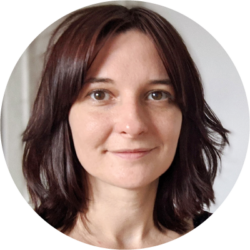 Lisa Forbes Grant is a Lecturer of Mental Health Nursing, with a clinical background working with children, young people and families as a Mental Health Nurse and Health Visitor. She has experience of leading practice innovation in the NHS and Social Care, with a focus on promoting relational and restorative practice. Lisa joined the University of Leeds in 2022, contributing to the development and delivery of the undergraduate nursing curriculum within the School of Healthcare.
Lisa Forbes Grant is a Lecturer of Mental Health Nursing, with a clinical background working with children, young people and families as a Mental Health Nurse and Health Visitor. She has experience of leading practice innovation in the NHS and Social Care, with a focus on promoting relational and restorative practice. Lisa joined the University of Leeds in 2022, contributing to the development and delivery of the undergraduate nursing curriculum within the School of Healthcare.
Lisa is keen to ensure that the importance of working with people and communities in a holistic and person-centred way is at the core of the nursing curriculum. Lisa initially worked with Kate Philips to develop the concept of the Baines Family Tree, author the family stories and consider how to embed the resource within the nursing curriculum. This led to a partnership with Dan Ward and Gabriel Jones, from the Digital Learning Team, who created an interactive digital resource that could be used by students within teaching and assessment. As the project developed, Claire Cooper and Faith Kennedy (Nursing Students) and David Woodcock (Expert by Experience) joined the team to further develop the Family Tree as a creative digital resource which enables students to apply theory to practice in an engaging and authentic way.
Winning this Teaching Award demonstrates the value of working collaboratively to develop innovative, creative and authentic learning experiences for students. Ultimately the hope is that such approaches will enable student nurses to provide an excellent standard of care in their future practice, with a positive impact on patient experience and outcomes. The recognition of the importance of stories and relationships within nursing education, to compliment consideration of theory and concepts, will hopefully motivate further innovation in this area of work.
Kate Phillips
 Kate Phillips joined the Child Nursing Team as a Nurse Lecturer at the School of Healthcare in November 2021, following moving from Cardiff. Kate holds professional Nursing & Midwifery Council registration as a SCPHN (Health Visitor), Children’s Nurse & Adult Nurse. Her clinical experience has centred around practicing as a Health Visitor, working with families and communities, carrying out child health surveillance activities and promoting health and wellbeing. Her career moved into higher education in 2015 due to her passion for teaching and supporting the development of the future nursing workforce. Her particular subject areas are health promotion and early intervention and prevention, and promoting the importance of community nursing practice.
Kate Phillips joined the Child Nursing Team as a Nurse Lecturer at the School of Healthcare in November 2021, following moving from Cardiff. Kate holds professional Nursing & Midwifery Council registration as a SCPHN (Health Visitor), Children’s Nurse & Adult Nurse. Her clinical experience has centred around practicing as a Health Visitor, working with families and communities, carrying out child health surveillance activities and promoting health and wellbeing. Her career moved into higher education in 2015 due to her passion for teaching and supporting the development of the future nursing workforce. Her particular subject areas are health promotion and early intervention and prevention, and promoting the importance of community nursing practice.
Kate was awarded Senior Fellowship with AdvanceHE from her development of inter-professional learning approaches and engaging students within curriculum development and promoting the importance of the student voice within her previous academic role. She is extremely passionate about the use of innovation within nurse education when supporting students to apply theoretical concepts to practice. Her contribution to the development of the Baines Family has included working with Lisa Forbes-Grant to develop the characters within the family, create their storylines, health events and family and social dynamics. Developing the collaborative partnership with Gabriel Jones and Dan Ward has enabled the concept to come to life and the development of a resource, which has been effectively used to support nurse education and create a more holistic approach to learning and assessment around the management of patient care. Claire Cooper, Faith Kennedy and David Wilcox are key in ensuring the resource is student and service-user centred.
I am over the moon that we have been awarded the Early-Stage Collaboration Teaching Award for the development of the Baines Family Tree. What started off as a small project for our first-year students, has grown and developed into an award-winning learning resource that has been used across the nursing programme and has received excellent feedback. It has been amazing working with such a creative and motivated team and we are passionate and excited about continuing to grow and develop the resource.
Daniel Ward
 Daniel Ward is a Senior Learning Technologist in the Faculty of Medicine and Health. Daniel was a secondary school teacher in the East Midlands for 14 years and has always had a great passion for employing a wide range of learning tools in his teaching as he taught Digital Media and Computer Science. Furthermore, at Nottingham Trent University, he was actively involved in mentoring and guest lecturing on teaching programmes until 2018 when he left his teaching position to pursue a career in building innovative digital materials for Further and Higher Education as a Senior Learning Technologist at Loughborough College before joining the Digital Education Service at the University of Leeds in January of 2022.
Daniel Ward is a Senior Learning Technologist in the Faculty of Medicine and Health. Daniel was a secondary school teacher in the East Midlands for 14 years and has always had a great passion for employing a wide range of learning tools in his teaching as he taught Digital Media and Computer Science. Furthermore, at Nottingham Trent University, he was actively involved in mentoring and guest lecturing on teaching programmes until 2018 when he left his teaching position to pursue a career in building innovative digital materials for Further and Higher Education as a Senior Learning Technologist at Loughborough College before joining the Digital Education Service at the University of Leeds in January of 2022.
Soon after taking up post as the Senior Learning Technologist in the Faculty of Medicine and Health, Daniel was approached by Lisa Forbes-Grant and Kate Philips with the idea to develop an online interactive family tree. After scoping out the requirements of the projects we established the concept was both viable and achievable and could have a significant impact on student outcomes, and so work on developing an early prototype began, spearheaded by Gabriel Jones, guided and supported by Daniel with aspects of technical support and learning design. The development of the resource has also included elements of testing within live teaching by both Kate and Lisa to gather effective user feedback which was used to incrementally improve the learner experience by Gabriel Jones. The enthusiasm of Kate, Lisa and Gabriel has driven and continues to drive this project forward, with the continued support and guidance from Daniel to refine and extend the concept to maximise the impact for learners.
The Baines Family Tree Project represents an outstanding collaboration from an inspired team on an ambitious and innovative concept to improve the outcomes of students across several programmes in the School of Healthcare. It provides a significant benchmark for others to aspire to and indeed has already inspired others across the faculty to develop similar concepts to further transform and enhance student outcomes on other programmes.
Faith Kennedy
 Faith Kennedy is a first year Child Nursing student at the University of Leeds and has helped provide the student perspective within the team. Coming from Lincolnshire, she completed her A-Levels in biology, chemistry, and physics in 2021 at Spalding High School.
Faith Kennedy is a first year Child Nursing student at the University of Leeds and has helped provide the student perspective within the team. Coming from Lincolnshire, she completed her A-Levels in biology, chemistry, and physics in 2021 at Spalding High School.
Throughout the year, Faith has been using the Baines Family Tree in a variety of settings, including lectures and assessments, and has experienced first-hand the benefits and support it has on the learning of both herself and other students. She has assisted throughout the design process, ensuring it remains an effective learning resource that is also student focused and student friendly.
I am delighted to be part of the team winning this University of Leeds Teaching Award. My experience with the teaching and staff at the University of Leeds has been excellent, and as a student I am honoured to have been involved in the development of this resource. I look forward to seeing how the future development of the Baines Family Tree continues to support the teaching of current and future healthcare students at the university.
Dr Claire Cooper
 Dr Claire Cooper is a second-year child nursing student at the University of Leeds. Having previously studied for degrees in Geology and Volcanology at Imperial College London, the University of Bristol, and the University of Leeds, Claire has had a very unusual journey on her route to healthcare. As a long-standing volunteer with St John Ambulance, Claire provided frontline care during the Covid-19 pandemic, and due to her previous studies has a wealth of academic experience which has helped her to contribute to this project. These contributions include providing student feedback, assisting with the production of grant and conference applications, and contributing to meetings on the further development of the Baines Family Tree.
Dr Claire Cooper is a second-year child nursing student at the University of Leeds. Having previously studied for degrees in Geology and Volcanology at Imperial College London, the University of Bristol, and the University of Leeds, Claire has had a very unusual journey on her route to healthcare. As a long-standing volunteer with St John Ambulance, Claire provided frontline care during the Covid-19 pandemic, and due to her previous studies has a wealth of academic experience which has helped her to contribute to this project. These contributions include providing student feedback, assisting with the production of grant and conference applications, and contributing to meetings on the further development of the Baines Family Tree.
I am delighted that the team has been honoured with this award. The Baines Family Tree is a great example of how integrating storytelling and online learning can enhance teaching in healthcare, and I’m very excited to continue working and developing this resource.
David Woodcock
 David officially is retired after careers in the Civil Service and NHS. He has a keen interest in research, particularly involving co-production and involvement of lay researchers. He obtained a MSc in Qualitative Psychology (Leeds University), and post graduate research qualifications (Leeds Beckett University) in his 50’s.
David officially is retired after careers in the Civil Service and NHS. He has a keen interest in research, particularly involving co-production and involvement of lay researchers. He obtained a MSc in Qualitative Psychology (Leeds University), and post graduate research qualifications (Leeds Beckett University) in his 50’s.
As a volunteer on a 6-year project investigating loneliness and social isolation amongst older people, David developed a method of project evaluation (called Volunteer Listeners) in which project participants held ‘conversations’ with peers and elicited ‘stories’. Scrutiny of these narratives provided rich insights into the subjects of loneliness and social isolation. Most recently he has been Lay Lead on an NIHR project looking at falls risk assessment on hospitals.
David has brought several perspectives with him (not least that of not being a Nurse), as a patient with several long-term medical conditions, membership of the team which introduced the Care Programme Approach to Leeds, and membership of Multidisciplinary teams. David feels that winning the award is a very public endorsement by the University of what can be done when calling together the knowledge, views and skills of staff, students, and technical and lay ‘experts’ in an egalitarian forum.
Dr Louise Pears, Dr Madeleine Le Bourdon, Dr Marine Guéguin and Dr Harrison Swinhoe
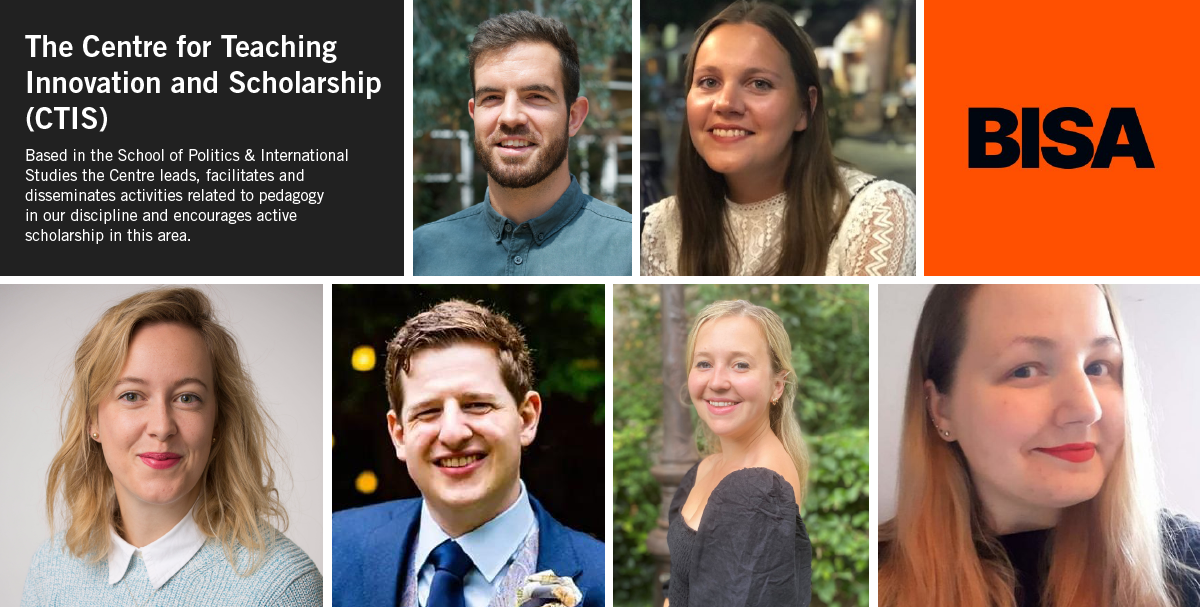
Photos of project collaborators (L to R): Dr Andreas Papamichail (QMU), Dr Marine Guéguin, Dr Louise Pears, Dr Harrison Swinhoe, Dr Madeleine Le Bourdon and Dr Natalie Jester (University of Gloucestershire).
#GlobalChallenges: Social Media, Pedagogy and International Studies
This collaborative project aims to investigate how social media can be brought into the International Studies classroom to improve teaching on the politics of global challenges. The project will run a series of focus groups across three HEIs (University of Leeds, University of Gloucestershire, Queen Mary University of London).
These focus groups explore how students use social media to learn about global challenges and how they think this could be captured and explored in their formal teaching. These groups will be run with students using participatory research methods to establish the students as co-creators of knowledge.
The project aims to set out ways to develop critical digital literacies in the International Studies classroom and to consider how incorporating social media in our teaching can help us achieve open critical pedagogies. The cross-institutional collaboration allows this project to capture a diversity of student experience, whilst also better enabling this project to foster research links and networks in the Scholarship of Teaching and Learning.
Dr Louise Pears
Dr Louise Pears is a Lecturer in Global Security Challenges at Leeds University. Her research interests are in Feminist Security Studies, Popular Culture and World Politics, Race and Postcolonial International Relations, Critical Terrorism Studies and Research Methods. What underlies all these areas is an interest in ‘the margins, silences and bottom rungs’ (Enloe, 1996) of International Relations. She is on a Teaching and Scholarship contract- and a feminist approach to pedagogy and a feminist curiosity is at the centre of everything she does.
Dr Madeleine Le Bourdon
Dr Madeleine Le Bourdon is an Associate Professor in the School of Politics and International Studies where she is the Co-Director of the Centre for Teaching Innovation and Scholarship, Programme Director for International Development BA (hons), and school lead for the University of Ghana study abroad semester. As a leading academic in the field of Global Education, Madeleine sits as an Academic Expert for the international ANGEL Network where she advises on policy, research and practice. She is the editor of the International Journal for Development Education and Global Learning, the co-host of the podcast ‘Politics and Pedagogy’ and Trustee for Diversity in Development.
Dr Marine Guéguin
Dr Marine Guéguin is a research fellow at the Centre for Global Security Challenges at the University of Leeds. Her research interests are Security Studies, Terrorism, and Decolonial and Critical Terrorism Studies. She is the host of Insecure, A Security Podcast
Dr Harrison Swinhoe
Dr Harrison Swinhoe is a research fellow at the Centre for Global Security Challenges at the University of Leeds. His research interests cover Salafi-Jihadist discourses, particularly in relation to sovereignty, and critical constructivist approaches in security and terrorism. He is the host of Insecure, A Security Podcast.
Sustained Collaborative Excellence Winners
Lucy Hamilton and Hayley Whitefoot on behalf of Teaching and Learning Enhancement NeTwork (TALENT)
Lucy Hamilton and Hayley Whitefoot on behalf of Teaching and Learning Enhancement NeTwork (TALENT) - Digital Education Enhancement / Faculty of Engineering and Physical Sciences
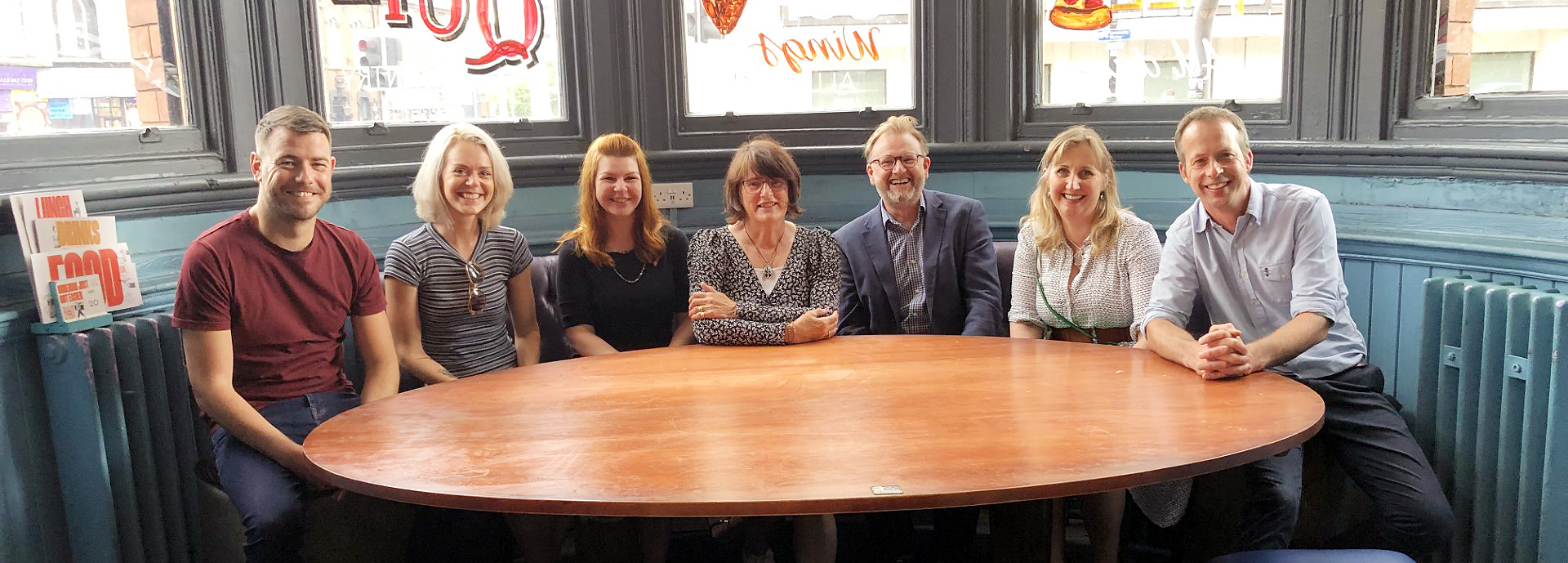
TALENT Founders: Dr Craig Evans, Lucy Hamilton, Hayley Whitefoot, Joanne Shiel, Dan Trowsdale, Professor Samantha Pugh and Dr Duncan Borman
The Teaching and Learning Enhancement NeTwork (TALENT) in the Faculty of Engineering and Physical Sciences was launched in 2018 by a handful of academics to share and support good teaching practice in a local, faculty context. It has scaled up those impromptu corridor conversations into a thriving network of 150 academics, providing technical and community-based support to enhance and transform student education.
Leaning on the experience of its like-minded, passionate members, TALENT is a friendly, enjoyable and supportive forum for EPS academics which helps to assess, inspire and engage students at Leeds.
TALENT is run collaboratively by its founding members, benefitting from insights from all schools. Everyone is free to contribute ideas and viewpoints, resulting in a diverse range of events that align with personal passions such as inclusivity, learning design, teaching non-native English speakers and automated marking.
TALENT creatively responds to the evolving needs of the faculty and the University and has delivered over 50 events. These events foster interdisciplinary collaboration, addressing challenges and opportunities within topics including assessment, digital accessibility, multimode teaching, learning analytics and the pedagogical use of AI and VR.
A recent survey showed that TALENT has improved the sense of community and belonging within the faculty, increased job satisfaction, and sparked a greater interest in pedagogy and scholarship. TALENT has kept the EPS academic community connected throughout key changes and challenges, including the transition to online teaching during lockdown and the recent upgrade to Minerva Ultra.
TALENT embraces an international perspective and has benefited from collaboration with Southwest Jiaotong University in China. Staff members from both institutions have shared their knowledge, experiences, and expertise in learning and teaching, fostering mutual respect and understanding.
We are delighted to win this award and be recognised for all we have achieved in the last five years. It’s the members that make TALENT a success, so here is a huge thank you to our 150 members and all your contributions. We look forward to many more years of working together and sharing and exploring our practice locally, nationally and internationally.
Dr Vas Ponnambalam, Professor Aysha Divan & Dr Mike Harrison
Dr Vas Ponnambalam, Professor Aysha Divan & Dr Mike Harrison - School of Molecular and Cellular Biology, Faculty of Biological Sciences
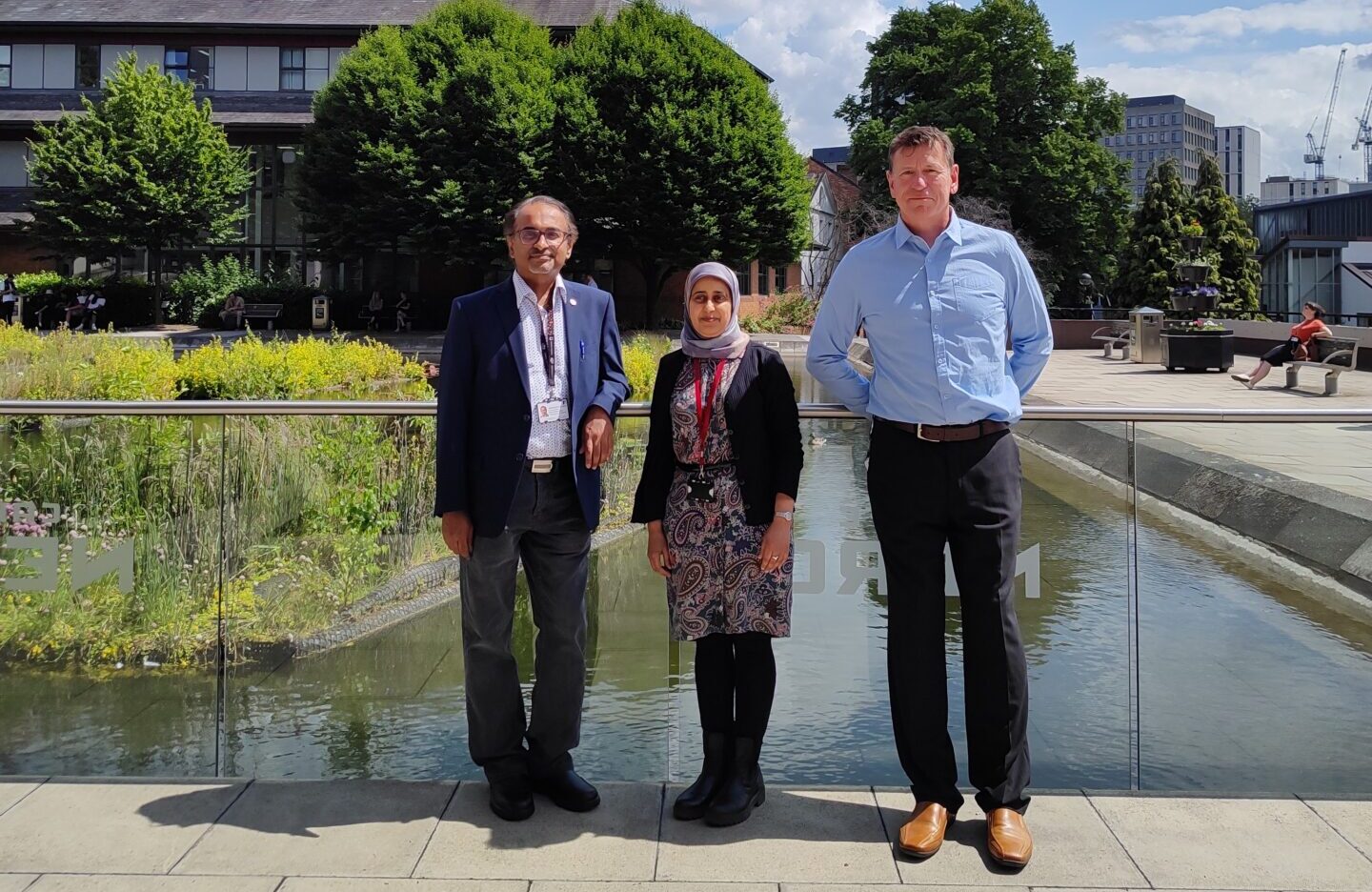
Dr Vas Ponnambalam, Professor Aysha Divan and Dr Mike Harrison
The award-winning team consists of Dr Vas Ponnambalam (Reader in Human Disease Biology, School of Molecular and Cellular Biology), Professor Aysha Diva (Pro-Dean for Student Education and Cancer Researcher, Faculty of Biological Sciences) and Dr Mike Harrison (Lecturer in Structural Membrane Biology, School of Biomedical Sciences).
They have been recognised for the design and delivery of practical programmes that deliver training in core life science techniques, quantitative skills and broader collaborative and team working capabilities. The training is flexible, available in both in-person, online or hybrid formats and has been utilised across multiple degree programmes and Schools across the University and by institutions within the UK.
The training is research-led, co-created with Masters and Postgraduate Researchers and is designed to more effectively prepare our graduates for fulfilling and challenging roles in a rapidly evolving global society.
On winning the award, Dr Vas Ponnambalam said: ‘A teaching award? Well, I never would have believed it!’
